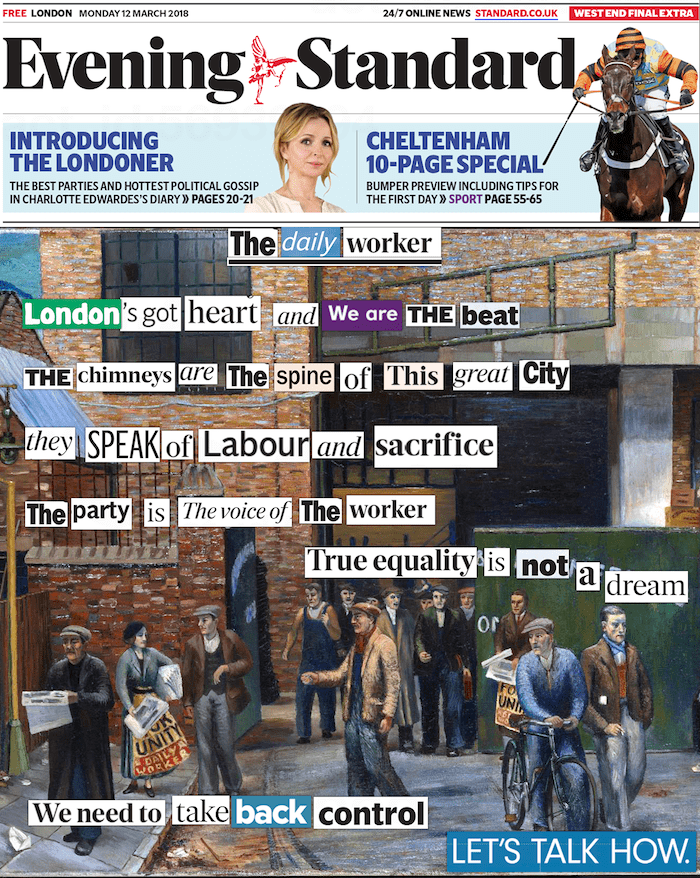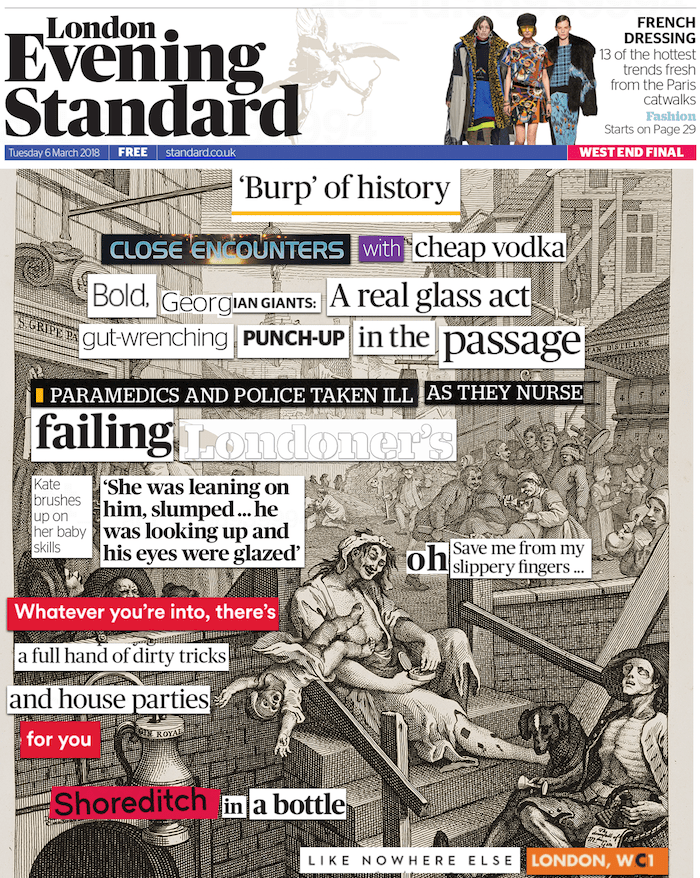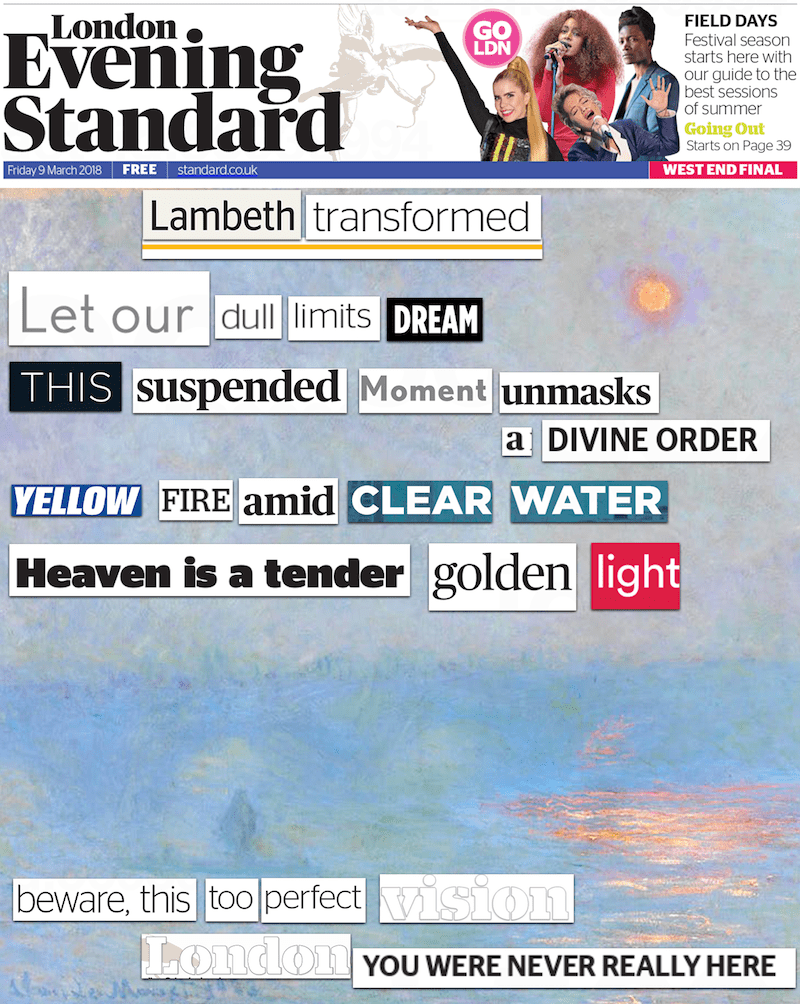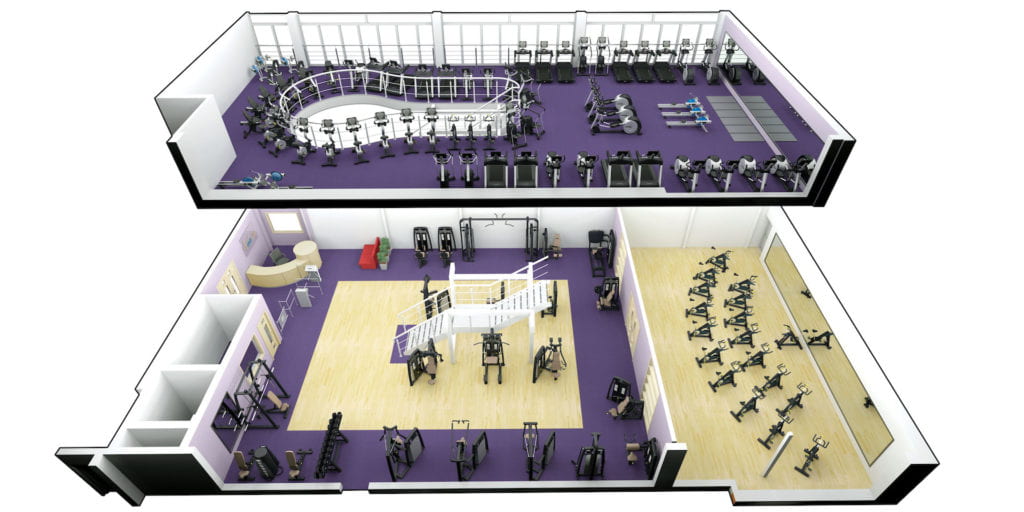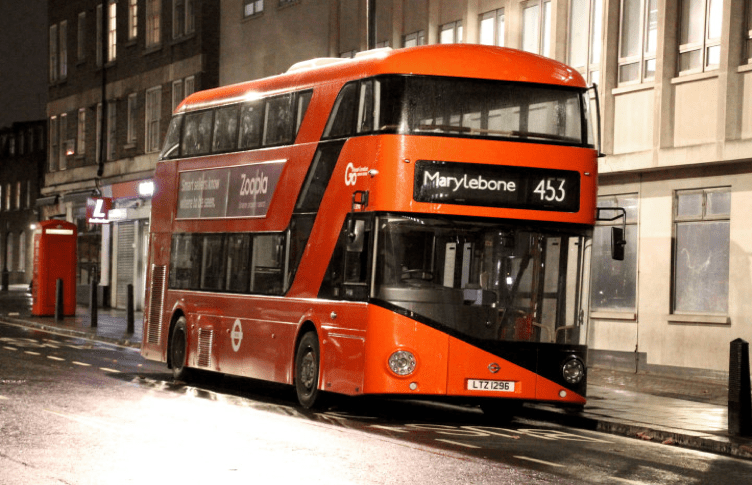Writing the City is a Goldsmiths short course that encourages students to learn about London while enhancing their creative writing skills. Maya Simkin interviewed the course leader, Sonia Lambert, to learn more about the course.
As part of the course, students create poetry from materials found in London. Can you describe this process and how it further connects students to the city while also developing their creative writing skills?
For the “found poetry” exercise we use free London newspapers like the Evening Standard and the Metro. The students make “cut-up” poems from headlines and text, inspired by artists and writers like William Burroughs and David Bowie. It’s weirdly therapeutic and we often get some amazing, surreal, and subversive work. It can be quite political – one student described hers as “Communist Party Propaganda!” – but there are also strange and resonant individual stories if you dig down into the small print. The randomness means you find things you weren’t looking for – but surprising meanings jump out of the juxtapositions. We use images as well and they look great, like mad blackmail notes.
- Selling The Daily Worker Outside Projectile Engineering Works (Branson) (Source: Dan Kelsall)
- A Jan Steen Kitchen (Leaman) (Source: Dan Kelsall)
I especially enjoy the session where students draw their own mental maps of one aspect of London. We’ve had a map of London swimming pools, break-ups in London pubs, and all sorts of weird and wonderful angles on the areas where people live and work. Everyone sees the city differently, and it’s teeming with our personal stories and histories.
How has writing about London in the class or otherwise changed over time? Have you noticed any shifts in recent years?
London writing is always changing. We’ve had some interesting Brexit stories over the past few years. I taught the class in the pouring rain on the night of the referendum, when everyone was in shock, thinking about what this might mean for their families and colleagues. Then during the last session, we all looked at our phones in the break to see how the big votes in Parliament had gone – it felt as if fact was outdoing anything we could invent. Listening to people processing these experiences through fiction and narrative non-fiction is an incredible process.
- Gin Lane (Hogarth) (Source: Dan Kelsall)
- Waterloo Bridge, Sunlight In The fog (Monet) (Source: Dan Kelsall)
What drew you to developing this course? How do you see it changing over time?
I love the way we have life-long Londoners remembering the city as it used to be, alongside recent arrivals, bringing their own hopes and fears from home. I really enjoy meeting Londoners in so many different jobs – health workers, social workers and teachers often have amazing stories to share. I also enjoy the way that by being intensely local in London you usually end up being intensely international as well.
To find out more about the Writing the City short course, please visit the course page on the Goldsmiths website. To see what other short courses are available, please visit the Short Course page.
